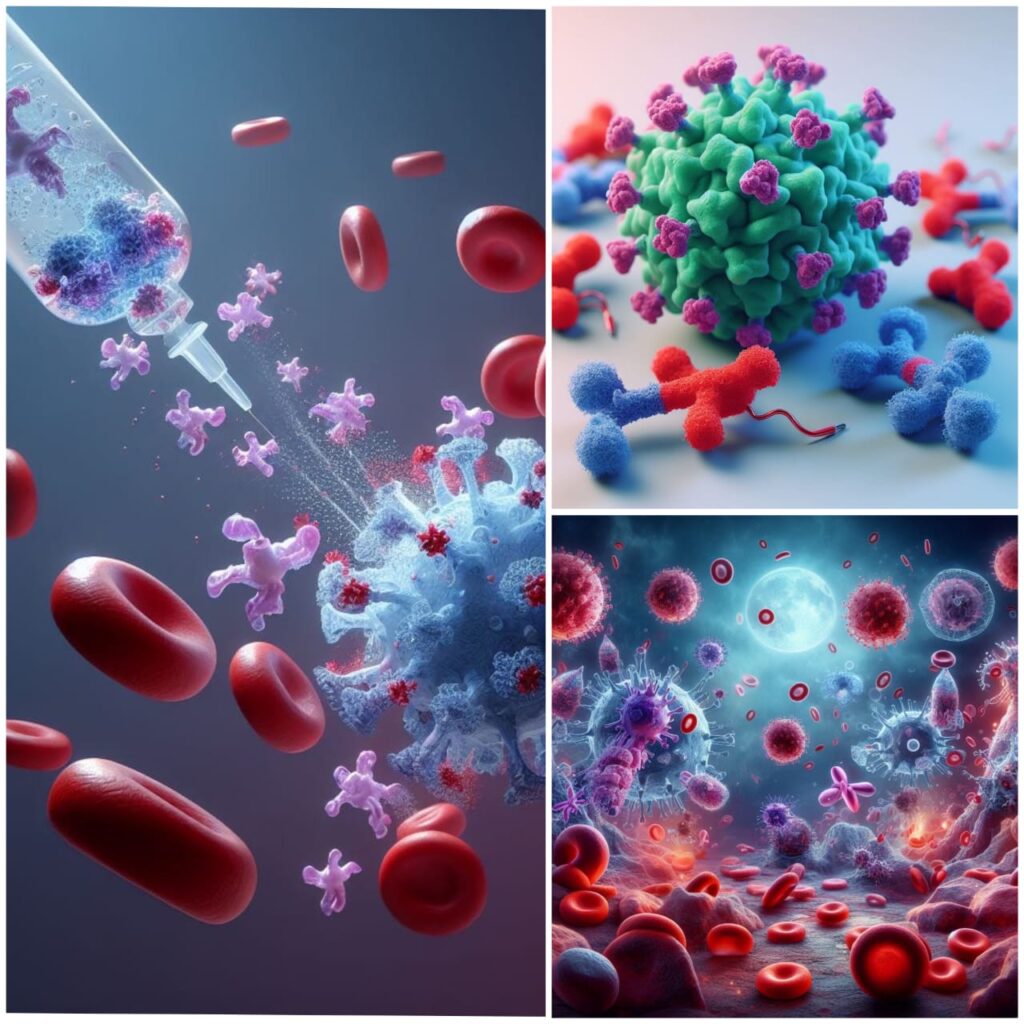MONOCLONAL ANTIBODIES: A BREAKTHROUGH IN MEDICINE

Monoclonal antibodies are a remarkable advancement in the world of medicine, offering new
hope in the fight against a variety of diseases. In this short blog article, we’ll explore what monoclonal antibodies are, how they work, and some of their exciting applications.
What Are Monoclonal Antibodies?
Monoclonal antibodies, also abbreviated as mAbs, are laboratory-made molecules that
mimic the immune system’s natural ability to fight against harmful invaders like viruses, bacteria, and even cancer cells. These antibodies are designed to target specific substances, making them highly precise therapeutic tools.
How Do Monoclonal Antibodies Work?
Monoclonal antibodies are just like guided missiles. Scientists engineer them to recognize
and bind to a specific target, like a protein or marker found on the surface of a
disease-causing agent. Once they attach to their target, these antibodies can exert various
effects, such as:
● Neutralise viruses by blocking their ability to infect healthy cells. This has been particularly important in the fight against infectious diseases like COVID-19.
● Some mAbs can activate the immune system and help the immune system identify
and destroy cancer cells more effectively.
● In conditions like autoimmune diseases, monoclonal antibodies can inhibit certain
proteins responsible for damaging healthy tissues.
Applications of Monoclonal Antibodies
Monoclonal antibodies have a wide range of applications in medicine:
- Cancer Treatment: They can be used to target specific cancer cells, slowing down their
growth or helping the immune system recognize and destroy them. - Infectious Diseases: Monoclonal antibodies have shown promise in treating viral infections
like COVID-19, reducing the severity of symptoms and improving recovery rates. - Autoimmune Diseases: Conditions like rheumatoid arthritis and multiple sclerosis can
benefit from mAbs that modulate the immune response.
4.Transplants: Monoclonal antibodies help prevent organ rejection after transplant surgeries
by suppressing the immune system’s attack on the new organ.
Advantages of Monoclonal Antibodies
● Precision: They are highly targeted, minimising damage to healthy cells.
● Effectiveness: Monoclonal antibodies have shown impressive results in various
clinical trials.
● Customization: Scientists can tailor mAbs for specific diseases or conditions.
Challenges and Future Prospects
While monoclonal antibodies hold enormous potential, they do come with challenges. They can be costly to produce and may not work for everyone. Additionally, they often require
intravenous administration, which can be inconvenient.
Nonetheless, ongoing research is continually expanding our understanding of mAbs, and they remain a promising avenue for improving the treatment of various diseases.
Examples of monoclonal antibodies
● Rituximab (Rituxan): Used to treat certain types of non-Hodgkin lymphoma and
chronic lymphocytic leukaemia.
● Trastuzumab (Herceptin): Effective in treating breast cancer.
● Adalimumab (Humira): used to treat autoimmune diseases like rheumatoid arthritis,
psoriasis, and Crohn’s disease.
● Palivizumab (Synagis): Used to prevent respiratory syncytial virus (RSV) infection in
high-risk infants.
● Infliximab (Remicade): Used to treat autoimmune diseases like rheumatoid arthritis,
Crohn’s disease, and psoriatic arthritis.
In conclusion, monoclonal antibodies represent a groundbreaking approach in the world of
medicine, offering targeted and effective therapies for a wide range of conditions. As
research continues to advance, we can anticipate even more exciting developments in this
field, potentially revolutionising the way we combat diseases in the future.
Ubaidulla KM
Mpharm
Pharmacy blogger
Website: www.itsmepharmacist.com




